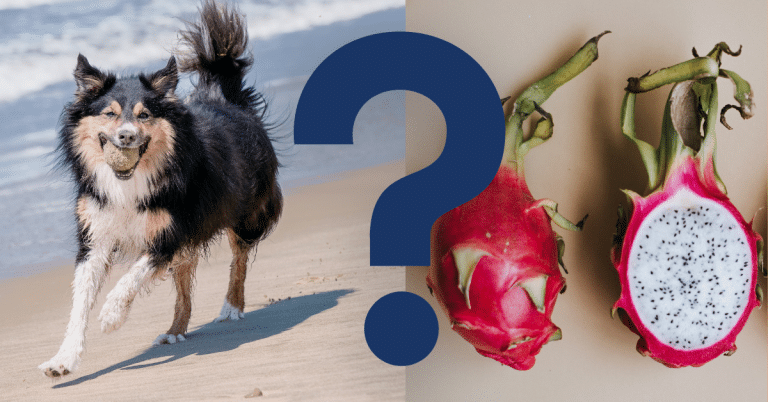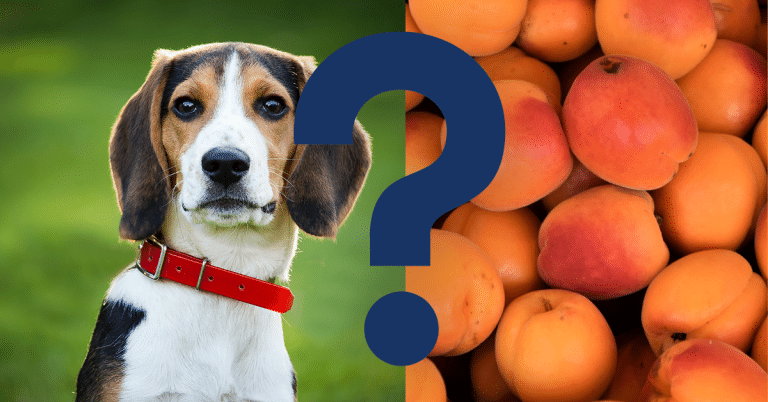Can Dogs Eat Jicama? A Vet’s Opinion

Jicama is a root vegetable that was first cultivated in Mexico. Its white, slightly sweet, and crunchy flesh is frequently consumed uncooked. But can you feed Jicama to your dog?
Yes, jicama is safe for dogs to eat in moderation. Jicama is a nutrient-rich, low-calorie vegetable that is an excellent addition to your dog’s diet. It has a lot of potassium, fibre, and vitamin C, which can help digestion and immunity. Before giving jicama to your dog, though, you should peel it and chop it into little pieces. Excessive chunks can be a choking hazard, and jicama seeds and skin contain rotenone, a natural toxin that can be toxic to dogs in excessive doses.
Benefits Of Jicama For Dogs
For several reasons, jicama might be a beneficial addition to your dog’s diet. The following are some advantages of giving jicama to dogs:
High In Fibre
Jicama has a lot of dietary fibre, which can help your dog’s digestive tract function normally. It can encourage bowel motions and help with diarrhoea, constipation, and other gastrointestinal problems.
Low In Calories
Jicama is a low-calorie food that is a fantastic choice for dogs trying to shed some pounds or keep their weight in check. It can be consumed as a calorie-free nutritious snack to sate their hunger.
Rich In Vitamins And Minerals
Jicama is a good source of vitamins and minerals crucial for your dog’s health. It is rich in potassium, which can maintain good blood pressure levels, and vitamin C, which can strengthen the immune system.
Anti-Oxidants
Jicama has anti-oxidants, including beta-carotene and vitamin C, that can save your dog’s cells from oxidative stress brought on by free radicals. It can aid in the prevention of chronic illnesses and support healthy ageing.
Can Promote Dental Health
Jicama is crunchy and solid, which can assist in cleaning your dog’s teeth and promoting dental health. Additionally, it can increase salivation, which helps your dog’s mouth fight off bacteria and avoid foul breath.
Jicama can generally be a wholesome and nutritious addition to your dog’s diet if given in moderation properly. Before making any significant dietary changes for your dog, speaking with your veterinarian is always a good idea.

How To Safely Give Jicama To Dogs
Jicama can be a secure and healthful dog treat when served in moderation and prepared correctly. The following advice will help you securely feed jicama to your dog:
Peel And Cut Into Small Pieces
Jicama should be well washed, the skin peeled off, and the fruit sliced into little pieces before being fed to your dog. Cutting it into bite-sized pieces is recommended because more significant portions can be a choking hazard.
Introduce Gradually
Introduce jicama to your dog gradually, just like you would any new meal. Start with a modest portion and gauge their response. Stop providing it to them if they exhibit symptoms of a stomach ache, such as vomiting or diarrhoea.
Don’t Add Salt Or Seasonings
When providing jicama to your dog, it’s crucial to refrain from seasoning or salting it. Dogs shouldn’t consume extra salt; some ingredients, like onion or garlic, might harm canines.
Only Offer A Little
Although jicama is nutritious, avoiding giving your dog too much of it is crucial. Jicama should be consumed in moderation as too much might upset the stomach or induce diarrhoea.
Watch Out For Allergies
As with any new food, keep an eye out for allergy symptoms in your dog. Stop giving your dog jicama and call your veterinarian if they notice any symptoms of an allergic response, such as itchiness, swelling, or trouble breathing.
Jicama can, in general, be a wholesome and nourishing supplement to your dog’s diet if it is given sparingly and prepared correctly. Before making any significant dietary changes for your dog, speaking with your veterinarian is always a good idea.
Will Jicama Make A Dog Sick?
Although jicama is typically healthy for dogs, some dogs may still experience stomach discomfort or other digestive problems, just like with any new meal. Jicama is high in fibre, which is suitable for dogs, but eating it too rapidly might upset their stomachs and make them feel bloated or dizzy. Jicama seeds and skin also contain rotenone, a natural toxin that can be toxic to dogs when consumed in sufficient quantities. To prevent giving your dog the skin or seeds, it’s crucial to peel and chop the jicama into manageable pieces before feeding it to them.
It is better to start with a fair bit of jicama and watch your dog’s reaction if you give it to them for the first time. Stop giving your dog jicama and call your vet if they see any symptoms of an upset stomach, such as vomiting, diarrhoea, or more gas. Jicama can, in general, be a wholesome and nourishing supplement to your dog’s diet if it is given sparingly and prepared correctly. Before making any significant dietary changes for your dog, speaking with your veterinarian is always a good idea.
Can dogs eat jicama variations?
Jicama is healthy for dogs to eat in moderation, although some jicama varieties might not be. Jicama products with added salt or seasonings, such as jicama chips, may not be suitable for dogs. Large doses of some condiments, such as onion or garlic, can be hazardous to dogs.
Jicama varieties can also be processed or prepared in a way that compromises some of the dietary benefits and nutrients found in raw vegetables. It may reduce their nutritional value for dogs.
You should carefully check the ingredient list on any Jicama products you’re thinking of giving your dog and stay away from those that have salt or other seasonings added. Additionally, check with your veterinarian to be sure the jicama kind is safe.
While it may be tempting to feed your dog jicama varieties, putting their health and safety first is vital, limiting this to giving them small, bite-sized pieces of fresh, raw jicama.

Vet’s Summary
Jicama can be a healthy and nourishing dog treat when given in moderation and prepared correctly. The vegetable is nutrient-rich, low in calories, fibre, and vitamin C. Before feeding your dog jicama, peel it and cut it into little pieces. Avoid giving them the skin or seeds, which can be harmful. Jicama can also be difficult for some dogs to digest, and overeating might result in digestive problems.
You should consider giving your dog probiotic supplements in addition to jicama if they have sensitive stomachs or are prone to digestive issues. By encouraging the growth of good bacteria and enhancing overall gut health, probiotics are helpful bacteria that can support a healthy digestive system. Probiotic supplements can be purchased online or at most pet retailers in various formats, including powders, chews, and pills. However, it’s crucial to speak with your doctor before giving your dog any supplements to ensure they are secure and suitable for their particular requirements.
Videos To Watch
If you are wondering if you can give jicama to your dog, watch this:
And if you want to know what a dog can NOT eat, watch this:






